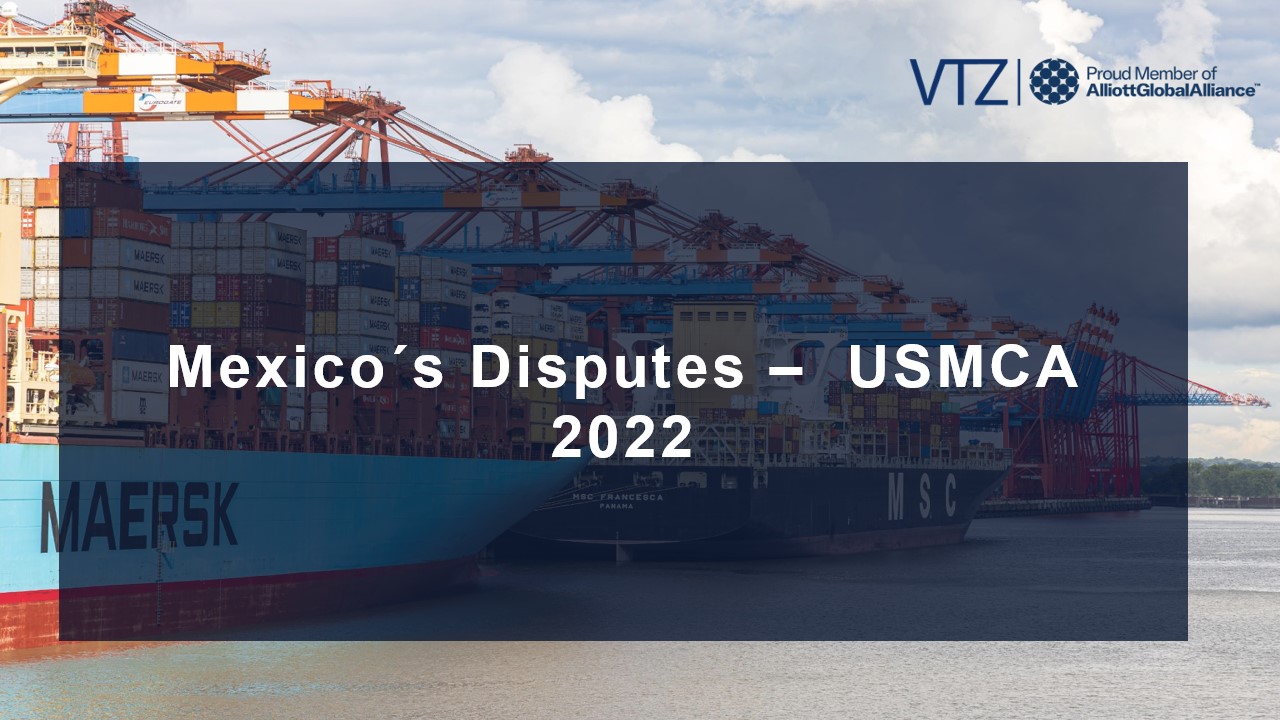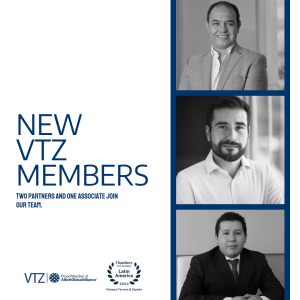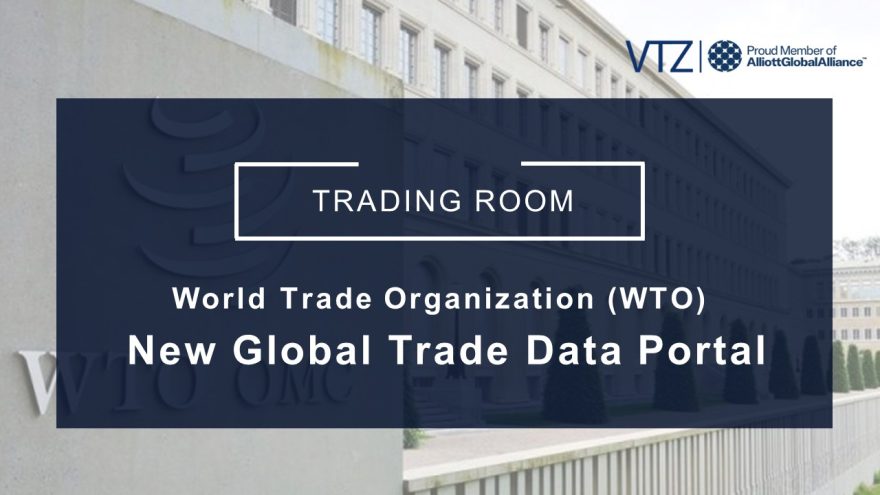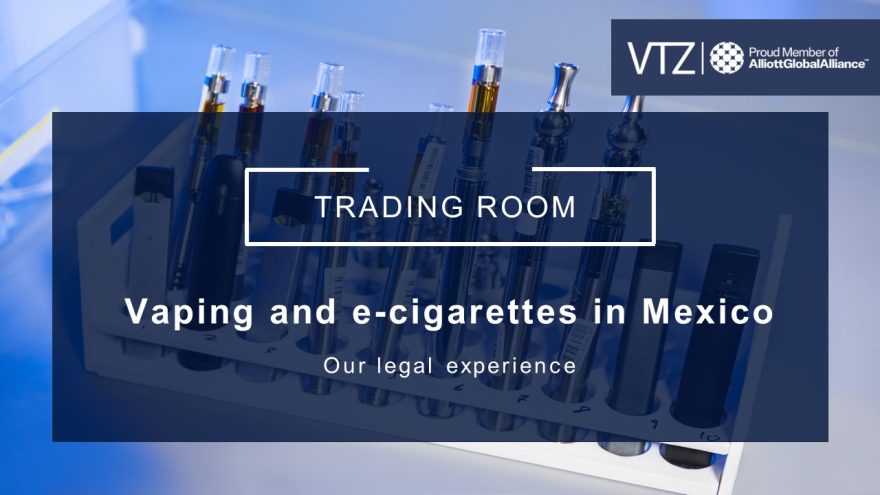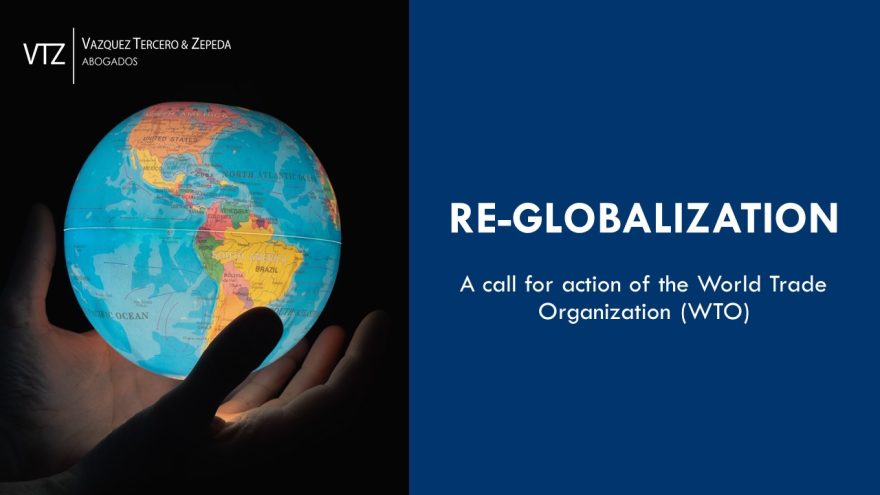USMCA and Mexico in 2022
VTZ presents its perspectives on Mexico’s USMCA disputes in 2022. The content of this summary is based on «Trade Table 2022”, our webinar, as well as relevant developments since. Trade Table 2022 had the special participation of Jorge Miranda, international counsel at Cassidy Levy Kent, as well as our partners Adrián Vázquez, Susana Muñoz, and Emilio Arteaga.
Mexico's USMCA Investment Disputes in 2022
The Mexican government’s actions in energy matters have deviated from Mexico’s obligations under the United States-Mexico-Canada Agreement (USMCA). Such deviations could lead to investment arbitrations under Chapter 14 USMCA.
Chapter 8 USMCA
The Mexican government claims that these energy measures are justified or exempted by Chapter 8 of the USMCA. Chapter 8 of the USMCA recognizes Mexico’s ownership of subsoil hydrocarbons. Curiously, the Government of Mexico seems to consider Chapter 8 of the USMCA to be a carte blanche for the entire energy sector, including the electricity sector. However, Chapter 8 is not applicable to the electricity sector since the chapter refers solely and exclusively to the ownership of hydrocarbons in the subsoil.
Allegedly based upon Chapter 8 of the USMCA, the current government proposes and justifies a policy to limit the participation of the private sector in the electricity sector from 62% to 46%.
Experts consider that it is highly probable that Mexico will be subject to investment arbitration under this proposed policy.
Investment Arbitration in 2022?
According to Jorge Miranda, one may assume that arbitrations could begin to materialize in October 2022, since the USMCA establishes that an investment claim cannot be submitted until 6 months after the event occurred and the event causes damage.
Statement by the US Government
The Republican members of the Committee on Finance and the Committee on Ways and Means, through a letter addressed to the U.S. Trade Representative, Katherine Tai, expressed their concern for the measures that the Mexican government seeks to implement to the detriment of U.S. investments in the energy sector. Specifically, they argue the violations derived from the «Constitutional Reform Bill for the Electrical Sector», «Hydrocarbons Law» and the elimination of 20-year hydrocarbon import and export permits to replace them with 1 to 5-year permits.
The committee stated that Mexico’s measures go against the investment chapter of the USMCA and violate the national treatment obligation. They also expressed their concern for the increase in gas emissions, the impairment of environmental conditions and labor safety in the hydrocarbons sector.
Mexico's USMCA Disputes in the Automotive Sector in 2022
Failing to find a solution through consultations, the first dispute between Mexico and the U.S. under the USMCA materialized. On January 6, 2022, the Mexican government requested the U.S. to establish a dispute settlement panel regarding the interpretation of the automotive rules of origin.
As we explained in our newsletter, VTZ pointed out that the USMCA Automotive Rules of Origin allow for the use of «roll-up» methodologies, according to the Mexican Ministry of Economy. In contrast, the U.S. considers that the Rules of Origin cannot be interpreted in this way.
When could there be a USMCA panel decision?
The first USMCA panel, concerning the U.S. dispute against Canada on dairy preferential quotas, is a precedent that illustrates the timing for the resolution of a USMCA trade dispute.
VTZ notes that the decision of this USMCA panel took a little over a year, 376 days, from the request for consultations, or 209 days from the establishment of the panel to the issuing of the decision. The panel determined that Canada failed to comply with its international obligations, and this decision cannot be challenged or appealed. Consequently, Canada has 45 days to comply with the Panel’s decision.
Record-breaking time to issue the decision!
If Canada complies with the Panel’s decision, VTZ notes that the U.S.-Canada dairy dispute would be resolved in a «record-breaking» time. Meanwhile, trade disputes at the WTO can take almost 6 years (or more) to be fully resolved!
Now, the next step in the U.S.-Mexico automotive rules of origin dispute is the appointment of the panelists. At VTZ we will be keeping an eye on the development of the case, so do not hesitate to subscribe to our newsletter.
Subsidies to electric vehicles
A possible dispute between Mexico and the U.S. in 2022 is the tax credits for the purchase of certain electric vehicles. In the last months of 2021, the controversial issue of possible subsidies for the purchase of electric cars in the U.S. arose. This program is part of the Biden administration’s Build Back Better initiative.
What is the issue?
The problem, in essence, is that American consumers will be able to get tax credits for the purchase of electric vehicles that are produced with mainly domestic (US) inputs and assembled in the US.
Responses from Mexico & Canada
Mexico’s representatives have mentioned that they will not let their guard down in the face of possible violations of the USMCA. Canada has also joined in opposition to the proposed electric vehicle subsidy program. In summary, both countries expressed their concern that these incentives for the purchase of electric vehicles are incompatible with the Agreement on Subsidies and Countervailing Measures (SCM Agreement) of the World Trade Organization (WTO) and the obligation of national treatment and non-discrimination provided for in the USMCA.
Build Back Better initiative status
The Build Back Better Initiative has not yet been approved by the U.S. Congress (it is currently in the Senate). In short, the future of this subsidy program is uncertain, so we obviously cannot yet talk about a dispute. But what would happen if the bill passes?
A dispute on subsidies at the WTO?
If the Build Back Better bill goes into effect in its current terms, Mexico or Canada could take into account the effects that subsidies and the threat of import displacement would cause, in accordance with Article 6.3 of the WTO Subsidies Agreement.
However, filing a subsidy claim or dispute is highly complex and requires the participation and cooperation of the affected industry in the exporting country, as explained by Jorge Miranda in our Trade Table 2022 webinar.
In that sense, Mexico required the participation of the automotive industry to file the claim against the U.S. for illegal subsidies at the WTO. Interestingly, the auto industry players in Mexico are also in the U.S. and could benefit from the Build Back Better program.
Mexico at the WTO, a possibility?
Consequently, Mexico may not have the elements to file a strong complaint at the WTO for illegal subsidies because the automotive industry may not cooperate, given that they benefit from the subsidies in the U.S.. In addition, VTZ highlights that the WTO dispute settlement body is functioning without the Appellate Body, so resorting to this forum would not be the best option.
USMCA dispute?
While the USMCA does not introduce subsidy disciplines as in the WTO, the Build Back Better incentives could violate the non-discrimination and national treatment obligation under Article 2.3 of the USMCA.
Unlike a subsidy dispute that requires a great deal of information and analysis, a dispute over non-discrimination and national treatment violations is relatively much simpler because of the type of legal analysis. If there is a USMCA claim on these grounds, VTZ believes that the proceeding could take a year to reach a decision, as was the case in the U.S. v. Canada dairy preferential quota case.
Batteries for electric vehicles
Another important and pending issue is to define when an advanced battery for electric vehicles qualifies as originating from the USMCA. This is the most important input for electric vehicles.
The issue of advanced batteries could become a hot topic at the negotiating tables of the update of the rules of origin for the automotive industry, taking into account the intention of the U.S. (in the Build Back Better) to introduce a new set of rules of origin for electric vehicles and to relocate manufacturing in its country.
VTZ In The News:
Fd
El Financiero
Mexico's disputes in the UMSCA Labor Rapid Response Mechanism in 2022
In 2021, the U.S. activated the Facility–Specific Rapid Response Labor Mechanism twice, although legally only one of them «materialized». The rapid response labor mechanism (RRLM) has been characterized by its speed and effectiveness in resolving labor disputes or denial of rights.
General Motors Case
In the case of General Motors in Silao, the mechanism was able to correct defects in a collective bargaining agreement vote in a short period of time. For more information, see our newsletter: USMCA Rapid Response Labor Mechanism and its First Cases.
Tridonex Case
On the other hand, the Tridonex case in Matamoros is particular and special in the context of the RRLM, which stemmed from a union complaint.
In this case, the Mexican government acknowledged the denial of collective labor rights, however, it also noted that such events occurred prior to the entry into force of the USMCA.
Therefore, the quick response labor mechanism was not applicable according to Mexico.
It should be noted that the Tridonex case is not a particularly illustrative precedent, as it is very difficult for such a case to arise again. However, this case is very special, as the U.S. was able to reach an agreement with the company and agreed to make severance payments to the company’s workers, among other things. The provisions of the UMSCA do not provide for direct participation of companies in the RRLM, another atypical aspect of the Tridonex case.
For more information, please see our bulletin: Labor Rapid Response Mechanism.
Labor reform implementation
The RRLM will be very important when considering the implementation phases of Mexico’s labor reform, which is in the third and final stage of implementation.
In other words, this year, in theory, the labor reform will be implemented in the states where there are the highest number of labor conflicts. In this sense, VTZ considers that the possibility that new labor conflicts will break out is increasing and, consequently, the RRLM will or may be activated.
The RRLM shows that we cannot talk about labor law without considering international trade and the USMCA.
Restrictions against Mexican tomato due to forced labor?
On January 12, 2022, the members of the Committee on Finance, in a letter addressed to U.S. Trade Representative Katherine Tai, mentioned that the U.S. Customs and Border Protection ordered a hold release with the objective of prohibiting the importation of certain types of tomatoes from Mexico produced under forced or compulsory labor conditions. The US continues to push Mexico on these and other labor matters, including measures against imports derived from forced labor.
Need more information?
VTZ is a specialized firm in International Trade, with a team with extensive experience, contact us for more information.

Adrian Vázquez
Managing Partner | Mexico City

Emilio Arteaga
Local Partner | Mexico City

